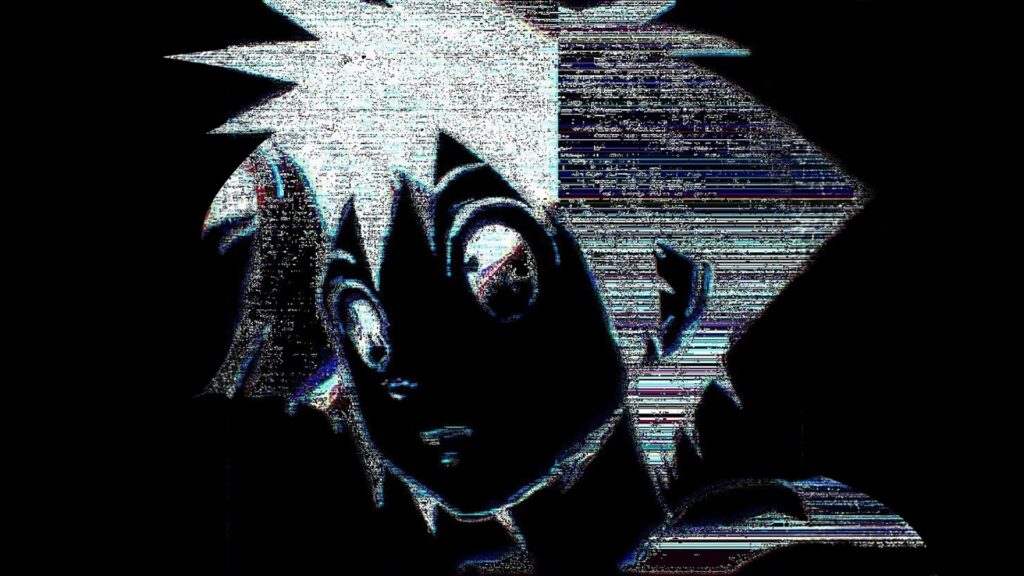Byung-Chul Han is perhaps best known for The Burnout Society, which is by no means his best work but perhaps his most widely read. In this slim volume, Han details the tiredness of a society driven by the self-flagellation of rampant individualism. No longer oppressed by a set of external disciplinarians as once suggested by Foucault at el. we have become in part our own masters, driven by an endless need for self-improvement that has led society towards this phenomenon of what Han calls ‘burnout’, and later – if we are to take the trajectory of Han’s thought to its inevitable conclusion – annihilation.
Compare, briefly, The Burnout Society with, say, Daniel Kahneman’s Thinking, Fast and Slow where this latter book promises to enable readers ‘to make better decisions at work, at home, and in everything you do.’ You can sometimes find The Burnout Society on the same shelf as Kahneman’s Thinking, Fast and Slow which offers, in some sense, every confirmation of Han’s analysis of Western neoliberalism fanatical about self-improvement to the point where practically every publication today promises to improve readers in some vital and transformative way.
Where fiction is sold in terms of that which provides entertainment, this kind of popular non-fiction is sold in terms of its promises towards self-improvement. In other words, the most popular books seem to facilitate either a regression into escapist worlds or the implementation of the necessary self-improvements required to exist in this one. Literary fiction has not escaped this paradigm either, with Sally Rooney’s characters often described in passing as problematic in the sense that they are obviously not working hard enough on improving themselves as individuals – they are far too accepting of the world and its circumstance. Worse still is the obtuse suggestion that Rooney is in some sense the embodiment of these imperfect characters, that as a writer of this new generation, she should ‘do better’ as the ideology of moral productivism so clearly demands. It may be the case that this moral productivism developed out of the neoliberal ontology as a mirror of the economic one.
Nevertheless, what is interesting about this productivism – which is so often tied to the implied moral failings of us all – lies in the presupposed metrics of what it means to even ‘do better’ in our society, how those metrics, upon closer inspection, seem utterly untethered from any referential positionality whatsoever, floating as ethics without reference. Ethics have become like a convenience food taken into our bodies without paying too much attention to where it came from or how it developed since the most important aspect here is always having available something marginally nutritious, something to sustain us in the form of a lukewarm meal at the end of the day. The end result of this moral productivism is not only one that exacerbates the phenomenon of tiredness but demonstrably leads to a restless society of the permanently unsatisfied, the most medicated, and the most depressed. Everywhere today this dissatisfaction with the Self is then projected onto a dissatisfaction with the Other. It may be the case that a sense of dissatisfaction towards the world is then projected onto the entire history of how a society came to be. The irony is one in which we are dissatisfied with a reality that surreptitiously feeds on our dissatisfaction, going so far as to screen the dissatisfaction for all to enjoy.
In the Baudrillardian sense, the “scenodrama” of morality and ethics that plays out has disappeared morality and ethics altogether since morality and ethics long ago entered hyperreality in a simulation where companies that exploited the earth for over one hundred years today lead the charge on saving it. Somewhere online exists a screenshot taken from when a multinational energy company’s Twitter account asked what people were doing to combat their own carbon footprints. In response, one comment pledged not to spill a few million barrels of crude oil into the Gulf of Mexico. It could be said that the humour here revealed the truth of the matter; in fact, what exists in the shadow of this sardonicism is always the semblance of some truth that no longer exists. The simulation of morals and ethics carried out in this way is perhaps the real reason Baudrillard wondered how the simulation of virtue could be punished whilst at the same time knowing full well that virtue is no longer attached to anything concrete – aloof from those depictions we live, swirling as aimlessly as the capital that profits from its images. There is not even basis enough in morality and ethics to condemn the world which is precisely how we would like things to remain since if the day came when we could judge in retrospect then this society, for all we knew of the world and its detriments, would be condemned as perhaps the worst of them all. What do we have to show for sacrificing the rainforest, the planet’s natural biodiversity? At the very least the Aztecs believed they were making the sun rise – and in doing so, sacrificed only themselves.
When I see The Burnout Society sold alongside those books whose ideological messages only support Han’s assessment of the culture, I cannot help but feel a deep sense of sardonicism radiating from his work. In short, what I found initially very amusing about The Burnout Society was a style and language that plays at the genre conventions of airport philosophy, as if Han was himself using the transparency of language inherent to neoliberalism as a tool for its own demise. To say, the literary style is stripped back, business-like, solemn in its clear-headed sobriety, tight as to seem almost tired. Nevertheless, ‘When a paradigm has come to provide an object of reflection,’ Han writes in The Burnout Society, ‘it often means its demise is at hand.’ The auspicious deconstruction of cultural paradigms was always Baudrillard’s criticism of Foucault, whose analysis of power was a depiction of a power that had already been and gone, that despite the ongoing attempts to teach Foucault’s work as salient, the theoretical understanding it provided was, in many ways, already obsolete. It is not coincidental that Han’s analysis of power also begins here, in a remit of thought that attempts to push back on the disciplinarian society as theoretically inadequate. It is, for this reason, The Burnout Society could also be considered a faultless model of a society too perfectly described. The inability to detect these nuances in The Burnout Society is perhaps one reason critics so often accuse Han’s writing of insipid sloganeering without asking why the language of marketing is ever present, just as Baudrillard was always accused of using an unnecessarily baroque style as if Marshall McLuhan’s The medium is the message never existed.
It is my contention that Baudrillard developed this style to stand as an antithesis to those emergent modes that today value transparent clarity beyond all equivocation. This is what Baudrillard meant when he talked about using the tools of theoretical violence, stating, ‘Theoretical violence, not truth, is the only resource left us.’ (Simulacra and Simulation, pg.163.) Demonstrably, we live in an age utterly hostile to ambiguity and so whilst Han’s literary style sets out to strategize the language of society against itself, it could be said that Baudrillard’s writing developed not as a means of simply exacerbating the trendy stylings of the postmodern intelligentsia of the time – as it is so often suggested – but as a direct attack on the simulacrum of clarity he foresaw developing out of a transparent society pathologically obsessed with reproducing the culture in its own image.
An appeal to the fallacy of incomplete or suppressed evidence, which is to say the selective process we call cherry picking, is the obvious yet ironically enervated counterargument to a reasoning that here proposes Byung-Chul Han – as with the case of the now infamous, Nick Land before him – as yet another disciple of the school of Baudrillard. Contemporary developments in academia have since demonstrated that it was never the now trendy, ‘interdisciplinary’ – holistically intersectional – approaches to critical theory that stood as points of contention in Baudrillard’s work but rather the supra-political nature of his approach that made him such a controversial figure in Western philosophy. Of course, suggesting that Han is working in the orbit of this Baudrillardian thought is quite obviously biased when considering my own foundationalism; but it should be considered, at the very least, a compelling theory that becomes harder to dismiss out of hand when Han’s next book, The Transparency Society, is taken into account.
Douglas Kellner, writing on Jean Baudrillard for the Stanford Encyclopaedia of Philosophy, briefly touches upon the concept of transparency in the French philosopher’s work whilst providing little exposition. After recounting Baudrillard’s ‘polemics against Marxism’, Kellner writes, ‘Henceforth, everything was public, transparent, and hyperreal in the object world that was gaining in fascination and seductiveness as the years went by.’ Having been appointed to the editorial board for the International Academic Journal, Baudrillard Now, it may be the case that Kellner’s approach to Baudrillard has perhaps softened over the years since writing, Jean Baudrillard: From Marxism to Postmodernism and Beyond, especially when we consider the emergence of a productive metaverse and those immersive virtualities that continue to shape the techno-capitalism of our deeply augmented – mixed reality – lifeworld. It is in an interview with Truls Lie then, published in the very first issue of Baudrillard Now, where Baudrillard underpins the nature of transparency as ‘about visibility, the total disappearance of secrecy.’ Baudrillard adds, ‘Everything has to be visible, not in a panoptical way where everything is visible to the naked eye. Transparency is more than just visibility, it is devoid of secrets. It is not just transparent to others, but also to the self. There is no longer any ontologically secret substance. I perceive this to be nihilism rather than postmodernism.’
Compare this reading to Han’s assessment of a society where, ‘Transparency makes the human being glassy. Therein lies its violence.’ To say, Han investigates this Baudrillardian reading of transparency within The Transparency Society whilst providing many additional instances of a lifeworld seen in terms of ‘hyperreal over-focus’ (pg.16), operating inside those ‘simulacra without reference’ (pg.40), held antithetical to ‘strong referentiality’ (pg.39). Furthermore, in both the works of Jean Baudrillard and Byung-Chul Han, the violence of this system is pitied against another violence altogether, which is to say, the violence of theory itself; ‘Theoretical violence, not truth, is the only resource left us.’ Compare Baudrillard’s ‘Theoretical violence’ with Han’s ‘Theory in the strong sense of the word is a phenomenon of negativity[…]’ wherein, ‘On the basis of such negativity, theory is violent.’ In Han’s dialectics then, ‘theory borders on the ceremonial’, where ‘Theory, as negativity, occupies a position anterior to positive data and information.’ To say, ‘Theory as negativity makes reality itself appear ever and radically different; it presents reality in another light.’ (pg.6). For both Baudrillard and Han then (and dare I say even Land, too), theory is associated with the rejuvenation of negativity, an acknowledgement of shadow as opposed to that ‘lightless radiation’ found in ‘the medium of transparency’ which is never ‘illuminating’ but rather, as Han suggests, ‘suffuses everything and makes it see-through’. (pg.39). Land differs greatly from Baudrillard and Han in the way their ambivalence towards these shadows – which is at the very least an important acknowledgement of them – is substituted in Land’s work for what could be considered the puritanical exacerbation of the negative shadow, the unconditional acceleration of all contradictions.
In fact, the exacerbation of this negativity is perhaps just as pathological as that transparency born from the promotion of positivity since, as Han relates, ‘the society of transparency manifests itself first and foremost as a society of positivity.’ (pg.1). It is not that ‘all individuals, harbour a secret urge to be rid of their ideas, of their own essences…’ (pg.6, The Transparency of Evil), as Baudrillard once theorised, rather the phenomenon of transparency, which is so clearly evident today, offers only a kind of dissociation from a totalisation of positivity. To say, transparency is not so much a ‘secret urge’ but that of another coping mechanism. ‘In any event’, Baudrillard correctly adds, ‘the consequences of a dissociation of this kind can only be fatal. A thing which has lost its idea is like the man who has lost his shadow, and it must either fall under the sway of madness or perish.’ It is today a society of delirium that results from having disappeared from all shadows, charting its course from positivity to transparency to the sway of madness. It is interesting to think of our ‘society of positivity’ in terms of J. M. Barrie’s Neverland, where Peter Pan, frozen inside his own timeless negentropy, is constantly losing his shadow. Nevertheless, in the end, transparency is never concerned with shining a light on the truth, as the ‘neoliberal dispositive’ so often pertains, since light is not only ‘coeval’ with darkness but has at its heart a ‘transcendent source’ (pg.39, The Transparency Society) which transparency lacks. At its core then, the ideology of transparency is always demonstrative of an ideology bent towards what we might call fully-accomplished nihilism since, as Han also writes, ‘Only emptiness is entirely transparent.’ (pg.40.)
It is this miscibility of sardonicism, medium is the message literary style and a particular constellation of thought that makes Byung-Chul Han a profoundly Baudrillardian philosopher where later books, such as Capitalism and the Death Drive, even deal with the concept of economic growth through the language of cancer. It is here where perhaps the greatest philosopher of our time begins to understand growth not through ‘[t]he idea of wealth that production once connoted…’ (pg.6, The Transparency of Evil) but through the metastatic processes of a ‘deadly vitality’ – which is to say, a theoretical outlook that borrows heavily from Fatal Strategies and the ‘incoercible and murderous vitality’ (pg.31) first explored in Baudrillard’s The Transparency of Evil.
References:
Baudrillard, Jean. (1994) Simulacra and Simulation, trans. Sheila Faria Glaser. US: The University of Michigan Press – (1993) The Transparency of Evil, trans. Benedict, J. London: Verso – (1990) Fatal Strategies, trans. Philippe Beitchman & W. G. J. Niesluchowski. Los Angeles: Semiotext(e).
Kellner, Douglas. (First published Fri Apr 22, 2005; substantive revision Wed Dec 18, 2019). Jean Baudrillard. Available at Stanford Encyclopedia of Philosophy – (1989) Jean Baudrillard: From Marxism to Postmodernism and Beyond. US: Stanford University Press
Han, Byung-Chul. (2022) Hyperculture, trans. Daniel Steuer. Cambridge: Polity Press – (2021) Capitalism and the Death Drive, trans. Daniel Steuer. Cambridge: Polity Press – (2015) The Burnout Society. California: Stanford University Press – (2015) The Transparency Society. California: Stanford University Press.
Cover photo: Midjourney AI
Next story


